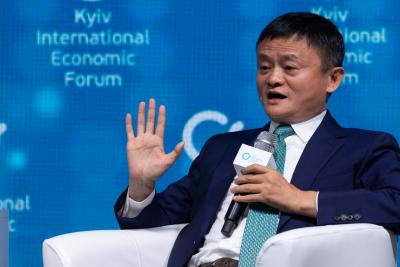As the news of Jack Ma, one of the most prominent billionaire business tycoons in China and co-founder of Alibaba Group going missing shocked the world, this action serves as a message to all its citizens and people around the world that it will have no tolerance for its critics. This incident took place within months of property tycoon Ren Zhiqiang being sentenced to 18 years of imprisonment.
Experts said that this would lead to an environment of extreme uncertainty for the business community as well as citizens at large. Chinese President Xi Jinping, who took charge in 2013, brought in new laws facilitating arbitrary and secret detentions on grounds of national security. Ma, once the country’s poster boy and a vociferous critic of the Chinese government, had come under the glare of the authorities.
Subsequently, Ant Group, an affiliate company of the Alibaba Group was barred from launching its initial public offering (IPO) — barely two days before it was slated to hit the market. “Ma had become too big and was getting more and more independent. Though China has created a conducive business environment, it essentially needs managers and not entrepreneurs. If this can happen to Ma, who is no ordinary person, then this can happen to anybody.
The larger message for businesses is that they need to exercise extreme caution,” Shakti Sinha, director, Atal Bihari Vajpayee Institute of Policy Research and International Studies, MS University told IndiaNarrative.com. The former bureaucrat added that this will lead to uncertainty among the people. Earlier, Chinese actor Fan Bingbing was detained by authorities over alleged tax evasion.
The list of China’s missing people is long. Even as “high-profile disappearances” have become common in China “countries are reluctant to call Beijing out because of potential consequences,” the Australian news platform the Australian Broadcasting Corporation, commonly known as ABC wrote.
Michael Caster, human rights advocate and a China researcher also told the news platform that the actual numbers of missing people were difficult to ascertain due to the secrecy process but they could be several hundreds. According to Caster, as published in ABP, detention could be “for a few weeks, months or much longer. Occasionally they don't come back at all.” “At home, the Chinese Communist Party, worried that permitting political freedom would jeopardize its grasp on power, has constructed an Orwellian high-tech surveillance state and a sophisticated internet censorship system to monitor and suppress public criticism. Abroad, it uses its growing economic clout to silence critics and to carry out the most intense attack on the global system for enforcing human rights since that system began to emerge in the mid-20th century,” the Human Rights Watch noted.
As a person, Ma – a former English language teacher — is the only true visionary China has produced in the technology sector, wrote the Nikkei Asia. “Driven, intense and aggressive, he is far more charismatic than the founders of other technology companies, with an ability to charm almost everyone he meets — including top bankers at Goldman Sachs, who were early backers of the young Alibaba,” the article noted. But it also spotlighted some of Ma’s enfeeblements. “… Ma is also more flawed than his counterparts, in ways that have sometimes created risks to Alibaba's progress.
For Ma, competition is intensely personal. People who have dealt with him say he has often behaved in undiplomatic and provocative ways, and his relationship with the communist government is uneasy,” Nikkei said. Eventually, for all his accomplishments, Ma paid the price of not overcoming the contradiction between his spontaneity and the colourless nothing-of-the -line culture of the CPC. .




















